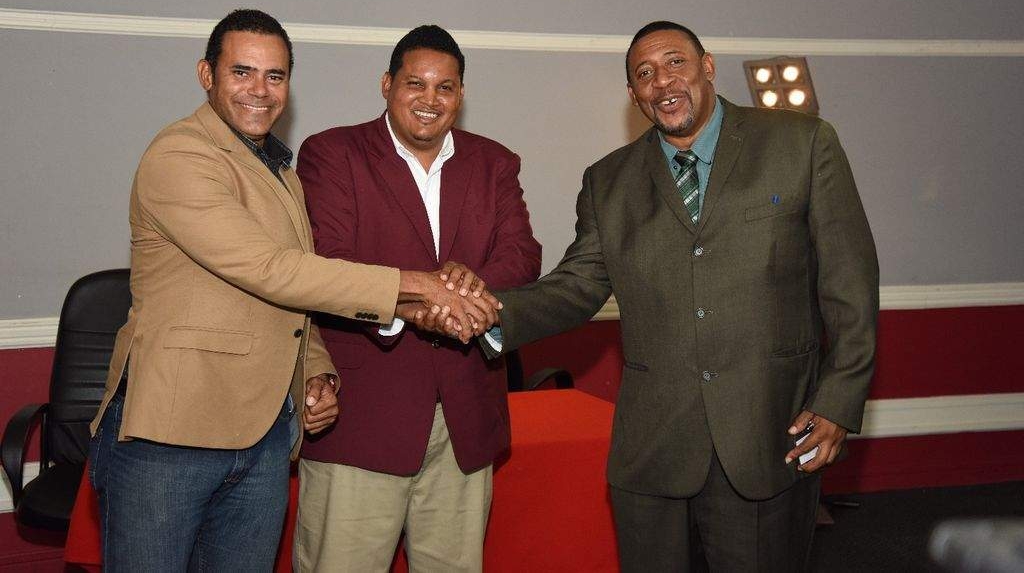David John-Williams, President of the Trinidad and Tobago Football Association wants to see an upward shift in the domestic football involving clubs across the board in Trinidad and Tobago.
With emphasis on player and coaching development and now overall club expansion, Williams has begun identifying development programs which he and the TTFA believes can aid local club football.
Among those are the FIFA Compensation Workshop which is scheduled for this weekend at Naparima College as well as other courses aimed at bringing benefits to local coaches and administrators which will be coming on stream in the coming months.
“Concacaf has introduced a club licensing program which will carry club football to a different level in terms of administration,” Williams told TTFA Media as he outlined some of the initiatives that will help lift local club football.
“The Concacaf Champions League is a good benchmark for the Trinidad and Tobago clubs to gauge where they are at administratively and of course on the pitch. Concacaf level demands a certain level of administration in terms of fields, in terms of lighting and all the stuff that is required at the Champions League level and this of course gives the Trinidad and Tobago clubs an opportunity to continue to aspire to play at that level and at the same time lift the level of club football administratively and on the field,” John-Williams told TTFA Media.
Two T&T clubs will be participating at the 2016/2017 Scotiabank CONCACAF Champions League, Central FC and DirecTV W Connection. They will host top clubs such as Pumas FC, Vancouver Whitecaps and Sporting Kansas FC for matches which will be aired live on Fox and ESPN. San Juan Jabloteh will join Central FC for the CFU qualifiers towards next year’s Champions League.
The upcoming National Super League promises to be another action-packed one with the national youth league also providing a stage for the upcoming talent.
John-Williams believes that with the Champions League being the pinnacle for local clubs, local players and coaches can learn a lot from following the progress of the T&T clubs at the Champions League level which leads to the FIFA World Club Championship.
“It’s an interesting match up for both Central FC and W Connection. It’s good preparation for the local players who are representing the national team. Champions League starts in early August, we have World Cup qualifiers in early September so I think they should get their games under the belts, the local players who are in coach Hart’s plans. It’s always good for the Trinidad and Tobago teams to play on the highest level of club football in the region which is the CONCACAF Champions League,” he said.
“It means a lot to the development of those players playing in the Champions League. They are exposed to a higher level of football, a serious environment and different crowds so it’s good for Trinidad and Tobago football in general,” John-Williams added.
The Club licensing program which T&T clubs will be exposed to is aimed at clarifying the outlines of the club football structure at national level and presenting a way forward towards greater professionalism in the entire CONCACAF region by using club licensing as a development tool, regardless of the participating country’s size and current development status.
It also extended the consultation process currently being carried out by FIFA with the confederations on reviewing the FIFA Club Licensing Regulations in order to create a club licensing system that is global in nature. The system respects different club football structures that exist in each region, is realistic and flexible enough to be adapted region to region and includes, as well as promotes, women’s football.
Professional football starts at the desk and while the major focus tends to be placed on coaches, players and officials, the club licensing program will now focus on other type professionals who contribute to the organizing of the leagues, venues and match-day experiences that will benefit the fans as well. FIFA has stated that the global club licensing framework is designed to improve club football by setting minimum standards in key areas such as stadium safety, fan experience and youth football development.
Juan Carlos Rojas, President of Costa Rican club Deportivo Saprissa explained “For instance we have a project in the club that we call “stadium experience”; we want people coming to our stadium to get a wonderful experience, so much so that they want to come back. Security, infrastructure or pricing are all crucial aspects. Understand that people can find other things to do than going to the stadium, so we need to invest in bringing them to us.”

